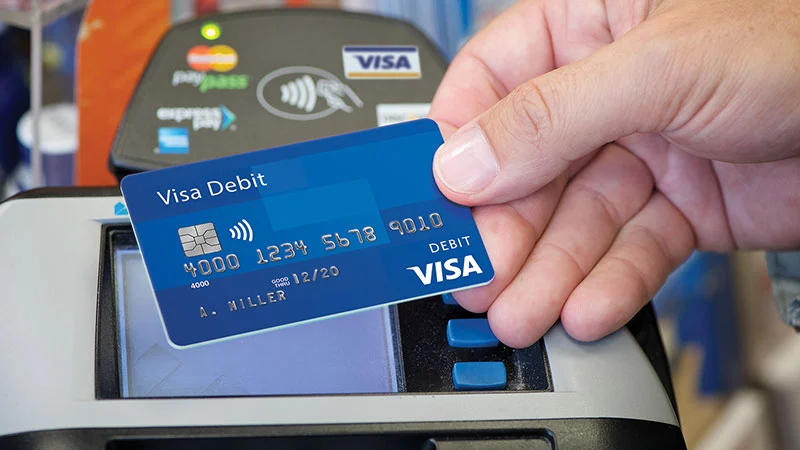
What’s In Your Wallet… May Just Be a Monopoly
Last week, the Department of Justice Antitrust Division filed a Complaint against Visa Inc., AKA that banking corporation that leads you to the State Department website whenever you try to login for billpay. Unclear if the DOJ will be looking into Visa’s misappropriation of government terminology next, but for now they’re laser focused on proving Visa is a monopoly in the debit card space whose (allegedly!) mob tactics against payment processors and merchants are leaving consumers holding a bag worth billions of dollars.
You can Read the Complaint in US v. Visa Inc. Here.
Let’s dive in.
The Issue
DOJ alleges that Visa has used the considerable scale of its debit card network to maintain a monopoly over the entire market of debit cards, such as it is. The methodologies it employs vary–perhaps it’ll offer merchants that use their network a discount, or threaten to increase the costs for processing for merchants that look like they’ll shift to another network. But ultimately, the DOJ sees it all as illegally enforcing a monopoly. While Visa hasn’t yet filed their rebuttal, it’ll almost certainly focus on the fact that while they make up 60% of the debit transactions of the US, there are notable competitors that are readily increasing their market share ahead of Visa- most prominently MasterCard, which has the 2nd largest share of debit transactions processed over their networks.
Rule
When it comes to monopoly power, the mere fact that an entity is a monopoly isn’t necessarily going to get them in trouble. Instead, it’s how the entity maintains its monopoly power. Economists, dismal as they are, will tell you that landline phone companies are “natural monopolies” despite the fact that you were merely asking if they would like to play Monopoly! But I digress.
Landline phone companies are natural monopolies because they connect consumers to one another over their network of physically connected phone lines, and back when landlines were a thing, if you wanted to call someone who was not on the same company phone line you couldn’t do it. Rather than force consumers to sign up for automatic bill pay for two, three or however many phone lines would be necessary to connect everyone across the entire country, it makes more sense to let a single entity run the whole network. Note that this problem is less extreme for the cell phone era because the technology can more readily interface with opposing networks.
Point being, when it comes to the law: its only illegal to have a monopoly if you gain or maintain the monopoly power by illegal means.
Analysis
As you would expect, the DOJ writes a good complaint. From the outset they underline the importance of the Visa network to consumers-particularly low income consumers who tend to have trouble getting credit and so must rely on debit cards for most or all of their transactions. If Visa maintains their monopoly power, and decides to just keep increasing fees because they fear no competition, then even if the merchant is technically responsible for paying their debit fee the merchant is likely to pass on the cost to consumer. Anyone whose seen the hastily scribbled note card informing them of an “additional fee for debit card transactions” at their local farmer’s market will have no problem understanding this.
But Visa’s reply is sure to include commentary about the relatively sluggish growth of their network, and the fact that there are plenty of merchants that do choose to go with someone else. In other words, if they’ve got a monopoly they’re doing a pretty lousy job profiting off it.
Conclusion
DOJ has just started its action so time will tell whether they’ll be able to prove Visa is acting as a monopoly. Visa will certainly have a well drafted reply through one of America’s top firms hitting the docket soon, and that’ll really begin the back and forth that could ultimately end up with a trial probably in late 2025 or 2026. While a settlement is generally more likely in these large scale enforcement actions, it’s also possible Visa views its debit card business as completely above board and will decide to push through to trial. If the case does go to trial, it’s hard to understate the potential consequences: Visa may be forced to break up, perhaps with its debit card and credit card businesses separated.
The Surrebuttal
It’s entirely possible that DOJ is taking this swing at Visa more to make the point that they have the chops to bring and enforce antitrust actions rather than really expecting to bring down Visa’s debit card business. The present administration has made no secret its intention to reign in what it views as big biz greediness. President Biden and Vice President Harris have both taken to the bully pulpit to decry greedflation and price gouging. Biden-Harris appointee to the FTC, Lina Khan, seems to have similar misgivings about large corporate pricing power, initiating actions against Meta (nee Facebook), Amazon, Nvidia and insulin producers. Which isn’t to say that this case is just about the DOJ puffing up its chest-its got real teeth and Visa should be careful.
But perhaps the people who should really worry are C-Suites of America’s biggest corporations.